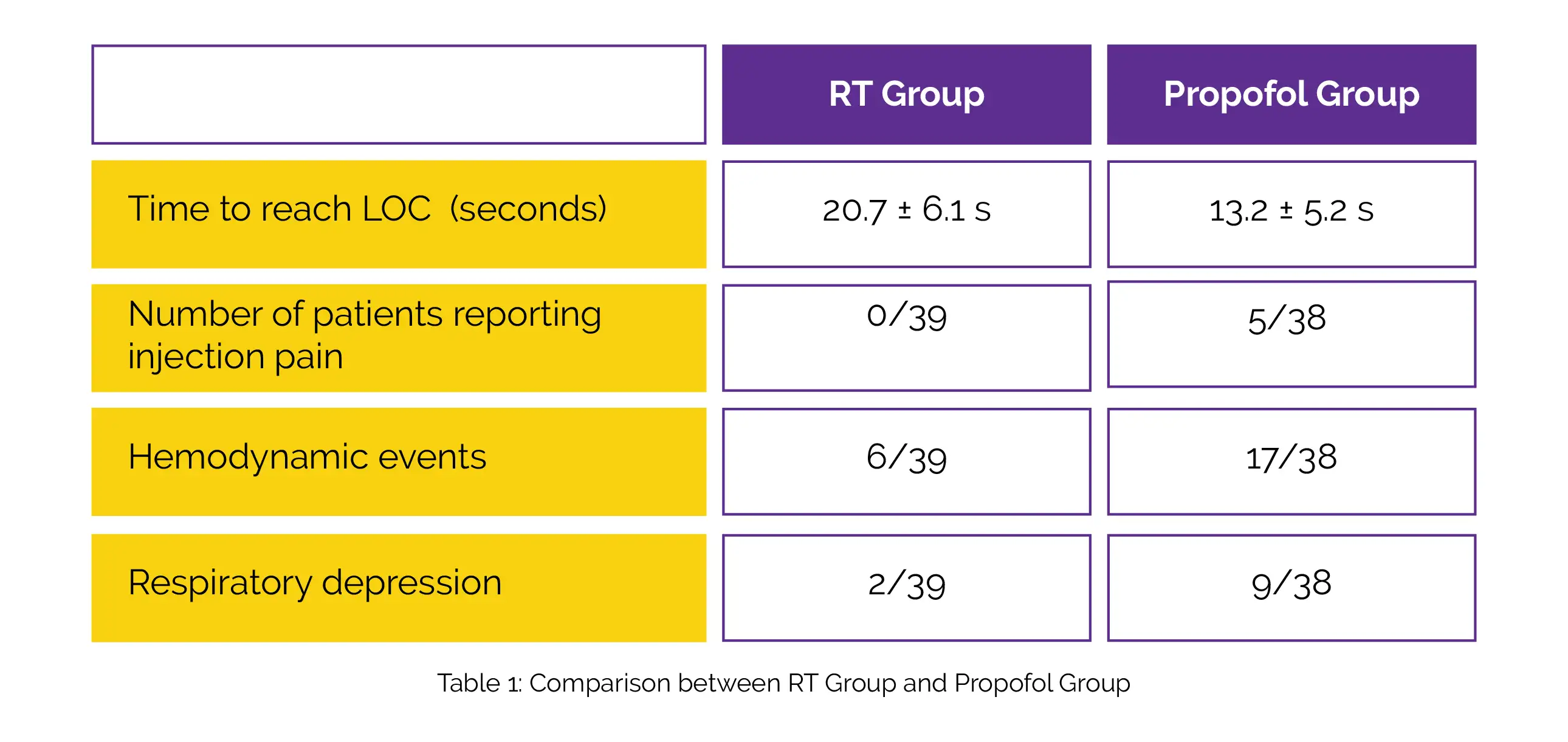Categories
Change Password!
Reset Password!


A prospective, randomized controlled trial was carried out to explore the sedative effects of Propofol and Remimazolam tosilate (RT) for geriatrics undergoing gastrointestinal endoscopy.
For gastrointestinal endoscopic sedation in elderly patients (aged ≥65 years), Remimazolam tosilate is a safe and efficient substitute for Propofol.
A prospective, randomized controlled trial was carried out to explore the sedative effects of Propofol and Remimazolam tosilate (RT) for geriatrics undergoing gastrointestinal endoscopy.
Overall, 82 subjects ≥ 65 years of age who were scheduled for gastrointestinal endoscopy and who had an American Society of Anesthesiologists grade I-II and a body mass index of 18.0 to 30.0 kg/m2 were chosen and randomly assigned to the RT group and Propofol group. In both groups, Alfentanil 5 μg/kg was administered as an analgesic.
While the Propofol group received 1.5 mg/kg Propofol with additional doses of 0.5 mg/kg, the RT group received 0.15 mg/kg RT with supplemental dosages of 0.05 mg/kg as required. Body movements of the participants and modified observational alertness/sedation assessment (MOAA/S) score were used to calculate additional dosages. Time to loss of consciousness (LOC) (MOAA/S score ≤1), the number of additional doses needed following a successful induction, and time for recovery were all assessed as sedative effects.
Additionally identified were sedation-related adverse effects such as respiratory depression, hemodynamic events, and injection pain. Documentation of dizziness or headache, remedial analgesic usage, resting visual analogue scale (VAS) ratings, and postoperative nausea and vomiting (PONV) was done. Additionally, an inter-group comparison of physician and patient satisfaction with the procedure was carried out.
Data of 77 patients was examined. Both groups experienced sedation with complete success (100%). The RT group took more time to reach LOC (MOAA/S score 1) than the Propofol group. Compared to subjects in the Propofol group, subjects in the RT group reported injection pain less frequently. Respiratory depression and hemodynamic events were less frequently noted in the RT group when compared to the Propofol group, as depicted in Table 1:

Following successful elicitation, RT recipients required more additional supplemental doses than Propofol recipients. The two groups were similar in terms of patient and physician satisfaction with the surgery, postoperative patient parameters, and patient enrollment characteristics.
Compared to Propofol, RT is effective and safe for gastrointestinal endoscopic sedation in older patients. RT use is associated with decreased occurrence of sedation-linked adverse effects, such as respiratory depression and hemodynamic events. The number of additional doses given after a successful induction may slightly rise when RT is employed.
BMC Anesthesiology
Remimazolam tosilate compared with Propofol for gastrointestinal endoscopy in elderly patients: a prospective, randomized and controlled study
Jian Guo et al.
Comments (0)